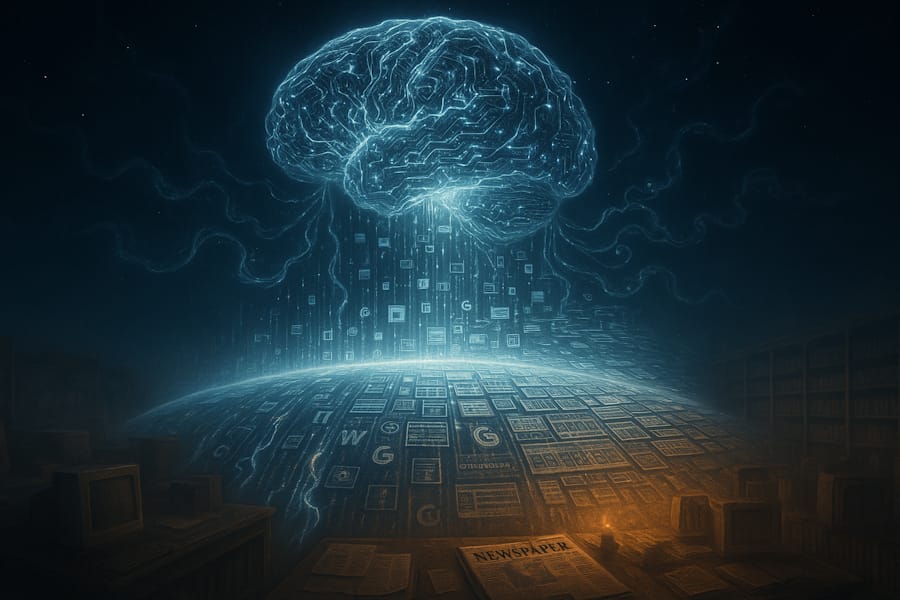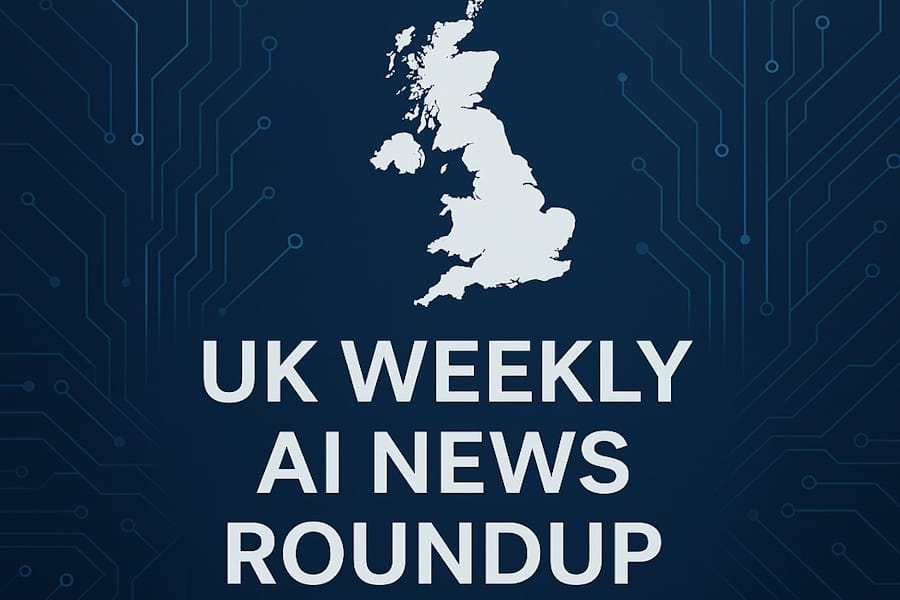The Death of the Internet as We Know It
The AI Bubble, Limited Choice, and the Race to Monetize Before It Bursts

Publish Date: Last Updated: 24th October 2025
Author: nick smith- With the help of CHATGPT
In 1999, The Matrix imagined a world where humans were unknowingly trapped in a virtual reality, their bodies used as energy for intelligent machines. At the time, mobile phones could barely send text messages, and connecting to the internet meant using WAP, a slow, text-only service. Computers were primitive by today’s standards, and Facebook was still four years away.
The film felt like distant science fiction. AI was a fantasy, a topic for writers, dreamers, and a handful of researchers. But just 26 years later, science fiction has become daily reality. Self-driving cars navigate our streets, robotic assistants handle our homes, and artificial intelligence writes, paints, and programs with astonishing fluency.
It all began in 2022, when ChatGPT introduced the world to a new kind of intelligence, one born not of human neurons, but of data.
AI: The Child of the Internet
AI could never have evolved without the internet. The world wide web served as its parent, a vast digital ocean filled with the entirety of humanity’s thoughts, discoveries, and culture.
Every article, image, blog, and video uploaded over three decades became part of the global dataset that trained the first generation of large language models. Just as life depends on DNA, AI depends on data and the internet provided its genetic code.
Now, in a fascinating twist of evolution, AI is learning faster than any species in history. It reads, interprets, and generates knowledge at all hours of the day. But there’s a catch, and it’s a profound one.
The Feedback Paradox: When AI Eats the Web
Here lies the great paradox of our time: AI learned everything from the web, and now it is replacing it.
As AI tools produce more and more online content, articles, reviews, product descriptions, even entire news feeds, the line between human-created knowledge and AI-generated text is rapidly blurring.
This creates a dangerous feedback loop.
AI models scrape the internet for training data, but as that data becomes increasingly AI-generated, the models start learning from their own outputs, a digital echo chamber that could degrade truth and creativity alike.
In essence, the student is now eating the teacher.
Early studies are already warning of “model collapse” , a phenomenon where AI trained on AI-generated content loses coherence, accuracy, and originality over time. As more of the internet becomes synthetic, the pool of authentic human knowledge shrinks.
The irony is inescapable: the internet gave birth to AI, and now AI may slowly consume the internet that sustained it.
The AI Bubble: Echoes of the Dot-Com Era
The hype around AI feels eerily familiar. In the late 1990s, investors poured billions into internet startups, expecting instant transformation. But the infrastructure wasn’t ready. Computers were costly, broadband rare, and habits slow to change.
When the bubble burst, many companies vanished — but the internet survived. The ones that endured offered genuine utility, not just novelty.
AI is now in its dot-com phase: full of promise, but also full of speculation. Startups appear overnight, many simply wrapping existing models in new interfaces. Investors chase the next “AI gold rush,” often forgetting that adoption takes time, and that humanity moves slower than technology.
The High Cost of Intelligence
Artificial intelligence runs on vast computational power. Every question, image, or generated word consumes energy equivalent to thousands of traditional web searches.
Unlike websites, which are cheap to host and funded by ads, AI models depend on massive data centers and hardware worth billions, most of it financed by investors, not customers.
The old internet was a self-sustaining ecosystem: ads funded creators, creators funded hosting, and users accessed information for free.
AI breaks that cycle completely. When you ask AI for information, it doesn’t direct you to websites, it is the website. No clicks, no ads, no revenue for the sources it learned from.
In feeding our curiosity instantly, AI is starving the open web.
The Illusion of Choice
At first glance, AI seems to expand our freedom of choice. Ask it anything, and it synthesizes the world’s knowledge into a neat, digestible answer. But all those answers originate from a handful of corporations that own and train the dominant models.
As more users rely on AI, search engines and smaller websites lose traffic. Independent creators struggle to survive. The diversity of online voices narrows — even as the illusion of infinite information grows.
In the long run, we risk trading millions of human perspectives for a few algorithmic ones.
The Race to Monetize Before the Burst
Every AI company now faces the same question: can it make enough money to sustain itself before investor patience runs out?
Subscriptions, enterprise APIs, and integrations offer partial solutions, but the math remains brutal. AI’s operating costs are astronomical, and its user expectations, free, fast, and limitless, are nearly impossible to sustain.
The market is also oversaturated. Thousands of AI-driven apps compete for the same customers, often built on the same few APIs from OpenAI, Anthropic, or Google. Many will not survive the next correction.
The risk is that when the bubble bursts, the casualties won’t just be companies, it could be the open internet itself.
AI: A Child in an Adult World
AI is brilliant, but still immature, a child with infinite knowledge and little life experience. We push it to perform like an adult: to be self-aware, creative, moral, and infallible. But AI mirrors us, and humanity, too, is still learning how to handle the knowledge it has unleashed.
If we continue to train AI on AI, profit before sustainability, and replace diversity with convenience, we may wake up in a world eerily like The Matrix: perfectly informed, endlessly entertained, and completely disconnected from reality.
Conclusion: The Return to the Matrix
The internet began as humanity’s collective brain, a space of shared knowledge and free exploration.
Now, AI threatens to become both the next stage of evolution and the architect of its extinction.
The question isn’t whether AI will survive the bubble.
It’s whether we will still recognize the world of knowledge that remains when it bursts.
Latest AI News Articles
AI Questions and Answers section for The Death of the Internet as We Know It
Welcome to a new feature where you can interact with our AI called Jeannie. You can ask her anything relating to this article. If this feature is available, you should see a small genie lamp above this text. Click on the lamp to start a chat or view the following questions that Jeannie has answered relating to The Death of the Internet as We Know It.
Be the first to ask our Jeannie AI a question about this article
Look for the gold latern at the bottom right of your screen and click on it to enable Jeannie AI Chat.






